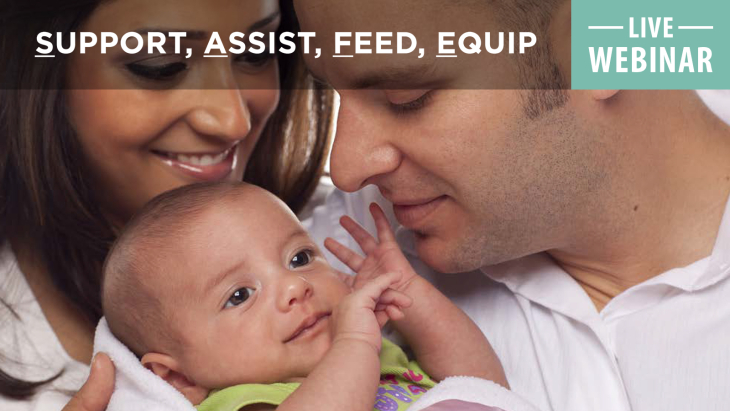Open
Support, Assist, Feed, Equip: A Guide for Safe Infant Feeding in Unstable Environments

Location
Dates & Times
Contact
Do you have event related questions or need help with registration?
In your community, there is a hurricane with flooding and loss of power that leads many families to seek help at a shelter. A plant closes resulting in families not having a source of steady income, which ultimately leads to concerns about paying bills and feeding their families. Or the city water source has become contaminated. The instability for families might not be instantly visible, as is seen during a natural disaster, but it is very real. Any of these instabilities in the environment will increase the vulnerability of families, especially mothers who are pregnant, postpartum and lactating, as well as infants and children under the age of two. For this population, the risk of infection and illness is greater when in unstable environments. They will need more care during a disaster to ensure that they are SAFE (Supported, Assisted, Fed and Equipped).
This interactive training offered through WIC LATCH (Lactation Area Training Centers for Health) will look at the challenges faced by this population in emergency situations and best practices for supporting them during the emergency.
Funding for this training has been made available through the North Carolina WIC LATCH (Lactation Area Training Centers for Health).